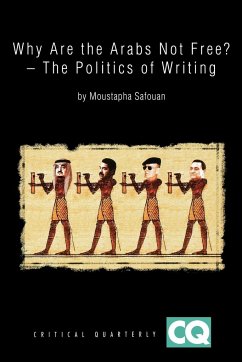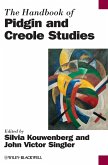Moustapha Safouan, in this courageous and honest book, confronts head-on the problem of Arab despotism, examining it from the point of view of political philosophy, religious argument and linguistic history.
A ground-breaking book written by the eminent Lacanian psychoanalyst Moustapha Safouan.
Rejects explanations of Arab despotism which appeal either to imperialism or to notions of Arab culture in favour of an analysis which focuses on the relations between writing and power.
Investigates the divorce between the classical Arabic which is the medium of education and the diverse vernacular Arabics which are the languages of the streets.
A tour de force of political philosophy, religious argument and linguistic history.
Hinweis: Dieser Artikel kann nur an eine deutsche Lieferadresse ausgeliefert werden.
A ground-breaking book written by the eminent Lacanian psychoanalyst Moustapha Safouan.
Rejects explanations of Arab despotism which appeal either to imperialism or to notions of Arab culture in favour of an analysis which focuses on the relations between writing and power.
Investigates the divorce between the classical Arabic which is the medium of education and the diverse vernacular Arabics which are the languages of the streets.
A tour de force of political philosophy, religious argument and linguistic history.
Hinweis: Dieser Artikel kann nur an eine deutsche Lieferadresse ausgeliefert werden.








